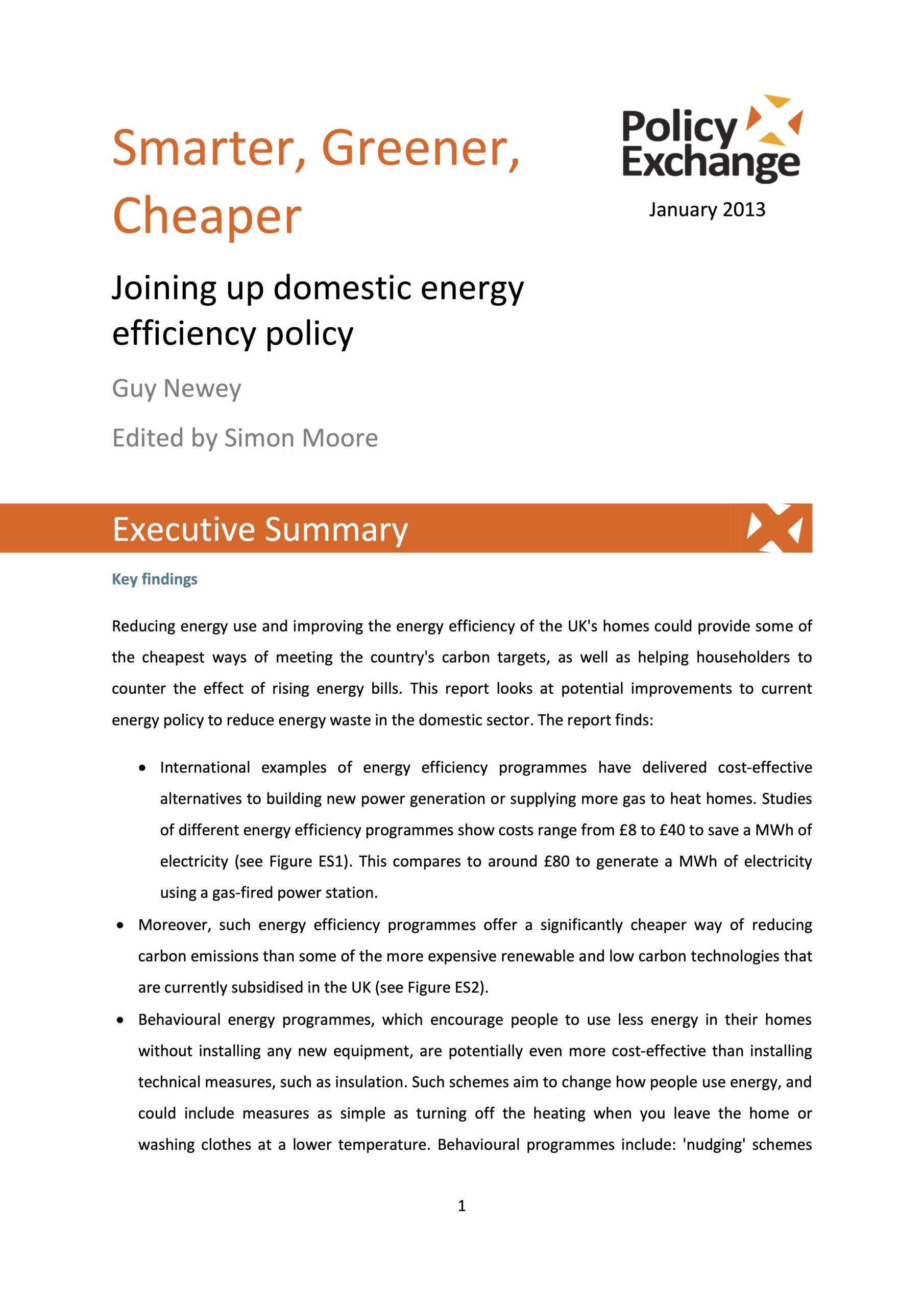
Smarter, Greener, Cheaper: Joining up domestic energy efficiency policy
Households could reduce their gas and electricity bills by as much as £70 a year if they were allowed to compare each other’s energy bills. Smarter, Greener, Cheaper, shows there is evidence both internationally and in the UK that households cut the amount of energy they use when their energy use is compared to that of a more energy efficient neighbour.
The report proposes extending an energy efficiency subsidy scheme – the Energy Company Obligation (ECO) – to allow schemes that can help households to cut energy use to compete for subsidies against support for existing measures such as solid wall insulation. Eligible schemes could include home energy visits that show people where they are wasting energy, better leaflets on how to cut bills or comparisons of energy use. In practice, energy companies would allow households to anonymously join the scheme which would let them compare their bills with people living in similar size properties.
This would create a real and competitive energy efficiency market which would allow charities and other experts in energy savings to compete for part of the subsidy alongside bigger energy companies. The report found that schemes that changed how households used energy were more than seven times cheaper than building new power generation. Such schemes also offer a potentially cost-effective way of cutting carbon emissions.
The report argues policy changes are needed if the government wants to take full advantage of the roll-out of smart meters, which will see 53 million new gas and electricity meters installed in homes across the UK over the next seven years.
The report also recommends:
- The government works closely with community groups and civil society to act as champions for smart meters
- A national advertising campaign to highlight the benefits of smart meters, which also shows how the programme fits in with other energy efficiency policies, such as the Green Deal
- An urgent review of Ofgem and the government’s attempts to ‘simplify’ the number of energy tariffs. This risks undermining the potential of smart meters to offer households innovative tariffs, where they could be paid different amounts for using energy at different times of day.
- Additional support for energy efficiency through the current Energy Bill, including a Premium Payment for energy efficiency.
Testimonials
“we applaud approach, which is clearly based on careful thinking about behavioural change, rooted not in gimmickry but in evidence and careful progression.”
Behavioural Dynamics Institute


